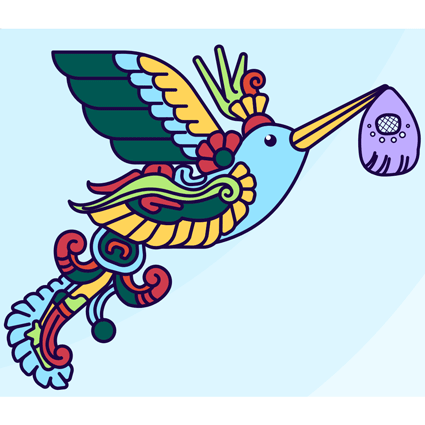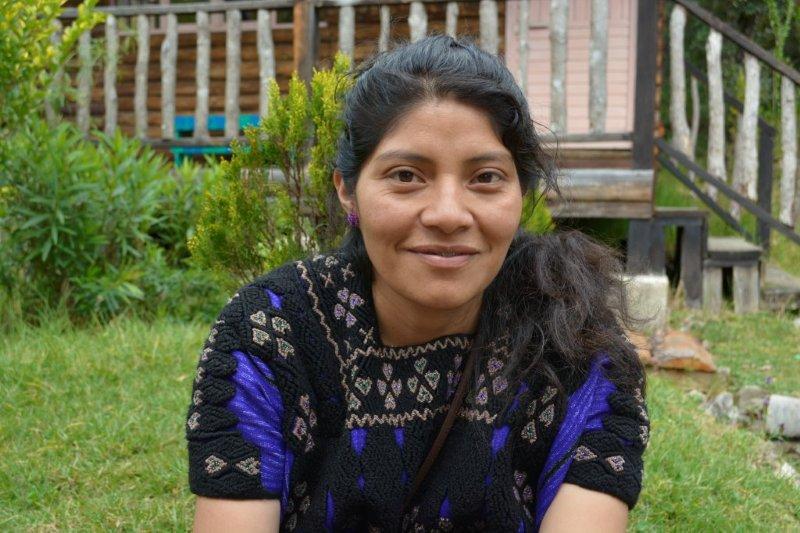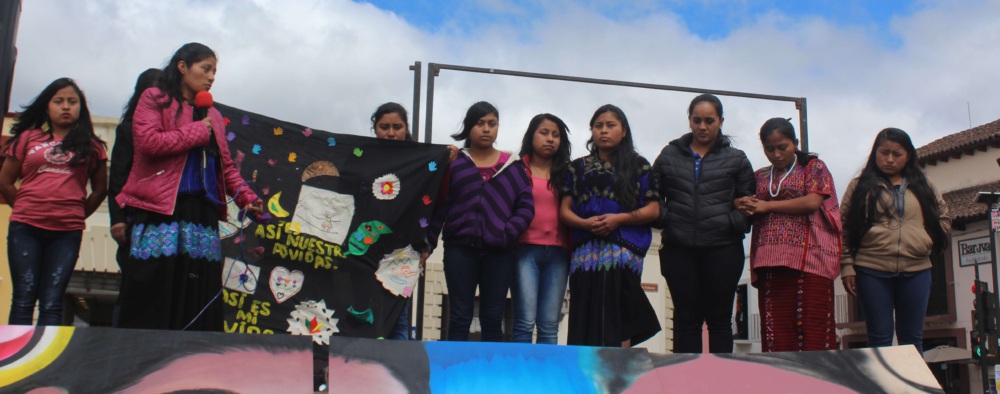
Justiça de gênero
Justiça de gênero, Segurança e bem-estar, Poder da juventude
Meu nome é Paty e sou da comunidade de Poconichim, Município de Chenalhó, nas Terras Altas de Chiapas, México.
Ser mulher na minha comunidade é muito difícil. As mulheres não podem fazer nada. Desde que você é uma garotinha, as pessoas dizem que as mulheres só pertencem a casa. Elas ensinam você a obedecer seus irmãos, seu pai, seu marido... qualquer homem. Elas ensinam que elas são mais valiosas do que você.
Os homens sempre me trataram muito mal porque eu não queria obedecer. Eles me batiam, gritavam comigo e me mandavam servi-los rápido.
Quando eu tinha 14 anos, meus pais me disseram que eu tinha que me casar porque um garoto veio me reivindicar. Somente os homens têm o direito de escolher com quem se casar. Mas eu não queria me casar, porque meu sonho era continuar estudando. Então eu fui embora.
Fui trabalhar em Villahermosa, Tabasco. Comecei a limpar casas, mas como eu não falava bem espanhol e como sou indígena, as pessoas zombavam de mim e me tratavam mal. Também sentia muita falta da minha mãe.
 Quando alguém decide migrar, é porque não tem outras opções. Porque não pode ser livre, só porque é mulher. E muitas vezes é mais do mesmo. Ou te maltratam por ser mulher, ou te humilham por ser pobre, ou te discriminam por ser indígena.
Quando alguém decide migrar, é porque não tem outras opções. Porque não pode ser livre, só porque é mulher. E muitas vezes é mais do mesmo. Ou te maltratam por ser mulher, ou te humilham por ser pobre, ou te discriminam por ser indígena.
Trabalhei muito e consegui juntar algum dinheiro. Embora muitas pessoas me dissessem que eu era louco e que meu sonho era impossível, comecei a estudar. Terminei o ensino médio recentemente.
E então voltei para minha comunidade. Porque eu não queria que outras meninas sofressem como eu sofri. Com o dinheiro que economizei, comecei uma cooperativa de café só para mulheres e meninas.
Começamos a ganhar dinheiro. Os homens da minha comunidade no começo não sabiam como reagir, mas no final não tiveram escolha a não ser nos respeitar. Eles perceberam que uma mulher pode trabalhar como um homem. Isso me faz rir porque acho que eles têm um pouco de medo de nós.
Então conheci outras mulheres que também tinham migrado e percebi que não estou sozinha. Com outras companheiras, formamos a Coalizão Indígena de Migrantes de Chiapas. Nossa organização sonha que nas comunidades indígenas de Chiapas, a migração seja uma decisão e não um destino. Especialmente para meninas e mulheres.
Quero que as mulheres não migrem se não quiserem. Que elas possam ser ouvidas e respeitadas dentro de sua comunidade. Não preciso de dinheiro, só quero minha felicidade. E quero ajudar outras pessoas a realizarem seus sonhos.
Sou um trabalhador, não um servo. E sinto que tenho uma vida boa, não porque tenho dinheiro ou porque estudei. Mas porque agora sou livre para tomar minhas próprias decisões.
A Coalizão Indígena Migrante de Chiapas (CIMICH) foi legalmente constituída em setembro de 2013 como uma Associação Civil (AC). A Coalizão é um passo importante para as comunidades indígenas de Chiapas em seus processos de construção de uma vida boa e migração positiva em seus territórios. Atualmente, é formada por 25 grupos localizados em municípios de Los Altos. 250 pessoas participam. Mais da metade são mulheres trabalhando em projetos produtivos e recebendo workshops para aprender sobre seus direitos políticos, civis, sexuais e culturais.
O CIMICH atua como braço comunitário da Voces Mesoamericanas Acción con Pueblos Migrantes AC (Ação das Vozes Mesoamericanas com Pessoas Migrantes), uma das mais novas parceiras de base do Global Fund for Children no México. Desde 2014, a Voces administra a School of Migrant Women, um programa que acontece a cada dois meses em diferentes locais e que funciona como um espaço onde mulheres migrantes, incluindo meninas e jovens, podem participar de esforços de organização política, compartilhar experiências e receber apoio.
